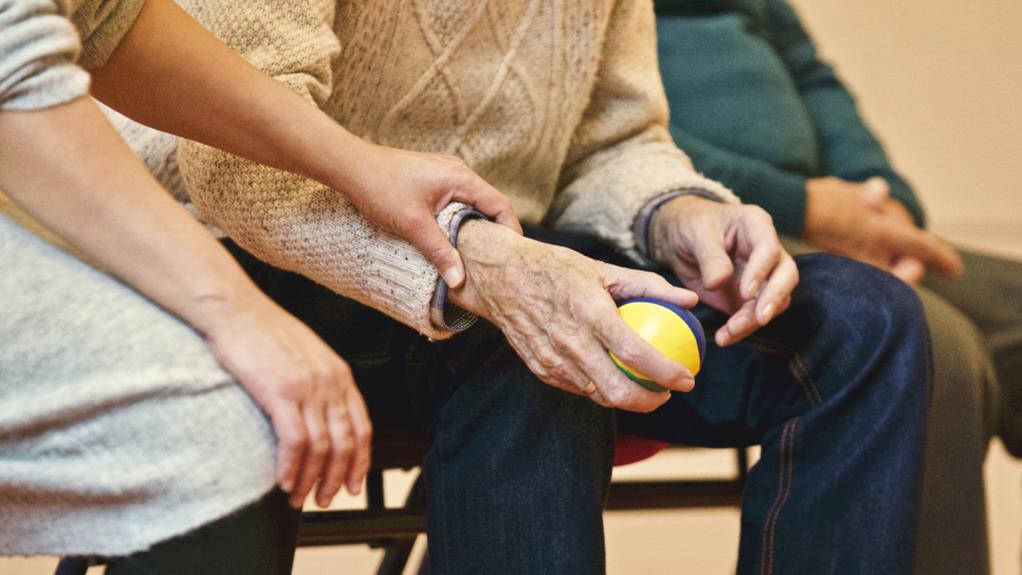Imagine facing the difficult task of making end-of-life decisions. Who should have the authority to navigate this delicate territory?
This article explores the various factors that come into play when determining who should make these crucial choices. From the patient’s autonomy and the role of a healthcare proxy, to the guidance of medical professionals and the ethical considerations at hand, we delve into the intricate web of decision-making.
Gain insight into the legal implications and framework that govern these decisions, as we strive to shed light on this complex topic.
Patient’s Autonomy and Decision-Making Power
When it comes to end-of-life decisions, it’s crucial that you, as the patient, exercise your autonomy and have the ultimate decision-making power. Patient’s rights play a significant role in this process, ensuring that your wishes and values are respected.
It’s important to understand that your family dynamics may influence these decisions, but ultimately, the final say rests with you. As the patient, you have the right to make informed choices about your medical care, including decisions about life-sustaining treatments, pain management, and even the option of palliative care.
Your healthcare team should provide you with all the necessary information and support to make these decisions, taking into account your personal beliefs and values. Remember, it’s your right to have control over your end-of-life choices, and your decisions should be respected by your family and healthcare providers.
Role of Healthcare Proxy or Power of Attorney
Your healthcare proxy or power of attorney is a crucial individual who’ll play a significant role in making end-of-life decisions on your behalf. When you’re unable to make decisions for yourself due to incapacitation or illness, your healthcare proxy steps in to ensure that your wishes are honored.
This person is typically a family member or trusted individual who knows you well and understands your values and beliefs. They act as your advocate, communicating with healthcare providers and making decisions based on your best interests.
However, it’s important to note that their role isn’t absolute. They must consider the input and opinions of other family members and adhere to any advance directives you have in place.
Ultimately, the role of the healthcare proxy is to ensure that your wishes are respected and that you receive the care and treatment you desire during your final days.
Medical Professionals’ Guidance and Expertise
As you navigate end-of-life decisions, it’s important to consider the guidance and expertise of medical professionals to ensure the best possible care for yourself or your loved one. Medical professionals bring a wealth of knowledge and experience to the table, helping you make informed decisions about treatment options and end-of-life care.
Here are some key reasons why their guidance is invaluable:
- Shared decision making: Medical professionals work with you to understand your values, preferences, and goals, ensuring that the decisions made align with your wishes.
- Expertise in medical treatments: They’ve the necessary expertise to explain the benefits, risks, and potential outcomes of different treatment options, allowing you to make well-informed decisions.
- Emotional support: Medical professionals provide emotional support, helping you and your loved ones navigate the complex emotions and challenges that arise during end-of-life care.
- Cultural perspectives: They respect and understand the cultural perspectives of patients and families, ensuring that care is delivered in a culturally sensitive manner.
- Access to resources: Medical professionals can connect you with resources such as palliative care, hospice services, and counseling, enhancing the quality of care and support received.
Ethical Considerations in End-of-Life Choices
To navigate the ethical considerations in end-of-life choices, medical professionals continue to play a crucial role in guiding you through the decision-making process. When faced with difficult decisions regarding the end of life, it is essential to consider the ethical dilemmas that may arise.
These dilemmas often revolve around issues such as the withdrawal or withholding of treatment, the use of advanced directives, and the allocation of limited resources. Medical professionals are trained to navigate these complex ethical dilemmas and can provide valuable insight and guidance.
Additionally, cultural perspectives also play a significant role in end-of-life choices. Different cultures may have varying beliefs and practices surrounding death and dying, which must be taken into account when making decisions.
By considering both ethical dilemmas and cultural perspectives, medical professionals can help ensure that end-of-life choices are made with compassion and respect for individual values and beliefs.
| Ethical Dilemmas | Cultural Perspectives | Medical Professionals’ Role |
|---|---|---|
| Withdrawal of treatment | Varying beliefs and practices | Provide guidance and support |
| Withholding of treatment | Cultural norms and values | Navigate complex ethical dilemmas |
| Advanced directives | Cultural customs | Help make informed decisions |
| Allocation of resources | Religious beliefs | Consider individual values and beliefs |
| Patient autonomy | Rituals and traditions | Advocate for patient’s wishes |
Legal Implications and Framework for Decision-Making
When considering the legal implications and framework for decision-making in end-of-life choices, medical professionals continue to play a crucial role in guiding you through the process. They’re knowledgeable about the legal requirements surrounding end-of-life decisions and can help ensure that you and your family navigate the legal landscape effectively.
Here are some key aspects to consider:
- Advance directives: These legal documents allow you to express your healthcare preferences in advance, ensuring that your wishes are honored even if you become unable to communicate.
- Proxy decision-making: In situations where you’re unable to make decisions for yourself, a designated person can step in and make medical choices on your behalf.
- Family dynamics: The involvement of family members in decision-making can vary, and conflicts may arise. Medical professionals can provide guidance on how to navigate these complex family dynamics in order to reach consensus.
- Legal documentation: It’s essential to have proper legal documentation in place to ensure that your end-of-life decisions are legally binding and can be implemented according to your wishes.
- Legal obligations: Medical professionals have a legal obligation to respect your autonomy and ensure that your wishes are honored, as long as they’re within the legal boundaries.


